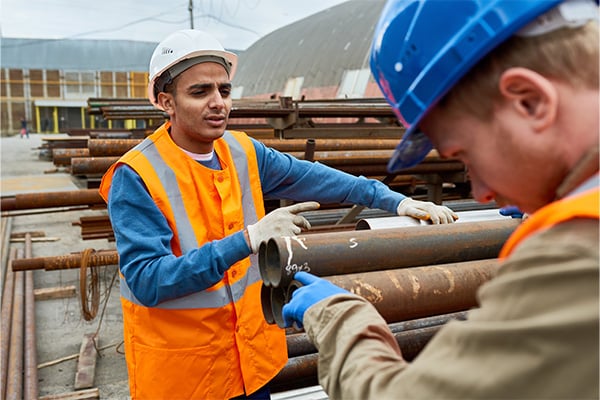Protecting Those Who Build

The construction industry plays a crucial role in shaping our cities and infrastructure. However, this field is not without its risks, as workers face potential hazards on a daily basis. In this blog article, we will explore the importance of workers’ compensation within the construction field, highlighting the benefits it provides to workers and their families.
Covering Occupational Injuries and Illnesses:
Construction workers encounter a myriad of potential hazards, including falls, electrocution, machinery accidents, and exposure to harmful substances. Despite stringent safety measures, accidents can still occur. Workers’ compensation serves as a safety net, providing financial support to employees who suffer from work-related injuries or develop occupational illnesses. It covers medical expenses, rehabilitation costs, and a portion of lost wages, ensuring that workers have the necessary resources to recover and move forward.
Ensuring Financial Stability:
The physical injuries sustained in construction accidents can be severe, leading to temporary or permanent disabilities. Such disabilities can impact a worker’s ability to earn a living and provide for themselves and their families. Workers’ compensation plays a vital role in ensuring financial stability during these challenging times. By replacing a portion of lost wages, it helps workers maintain their standard of living, meet their financial obligations, and support their dependents throughout the recovery process.
Providing Rehabilitation and Support:
Recovering from a construction-related injury can be a long and arduous process. Aside from medical treatment, workers often require rehabilitation services, including physical therapy, occupational therapy, and vocational training. Workers’ compensation covers these necessary services, aiming to restore an individual’s physical functions, improve their quality of life, and facilitate their return to the workforce in a safe and productive manner. Additionally, the emotional support provided through counseling services can help workers cope with the psychological impact of their injuries.
Employer Responsibility:
Workers’ compensation is not just beneficial for employees; it also serves as an acknowledgment of the employer’s responsibility to provide a safe working environment. Construction companies are legally required to have workers’ compensation insurance, which protects both parties in the event of a workplace injury. By maintaining a safe working environment and adhering to safety regulations, employers can prevent accidents and minimize the need for compensation claims, benefiting both their workers and their business.
Navigating the Legalities:
Filing a workers’ compensation claim can be complex, especially for construction workers who may be unfamiliar with the process. This is where the expertise of workers’ compensation attorneys comes into play. These legal professionals possess an in-depth understanding of the system and can guide injured workers through the proper channels. They can help gather evidence, communicate with insurance companies, and negotiate fair settlements on behalf of injured construction workers.
Conclusion:
Workers’ compensation is a crucial aspect of ensuring the well-being of construction workers who build and shape our world. By providing financial support, rehabilitation services, and legal guidance, workers’ compensation serves as a safety net that protects workers and their families in the event of an occupational injury or illness. It reinforces the responsibility of employers to maintain a safe working environment and provides workers with the necessary resources to recover and rebuild their lives. As construction continues to be an integral part of our society, ensuring worker safety and the availability of workers’ compensation remains paramount.
